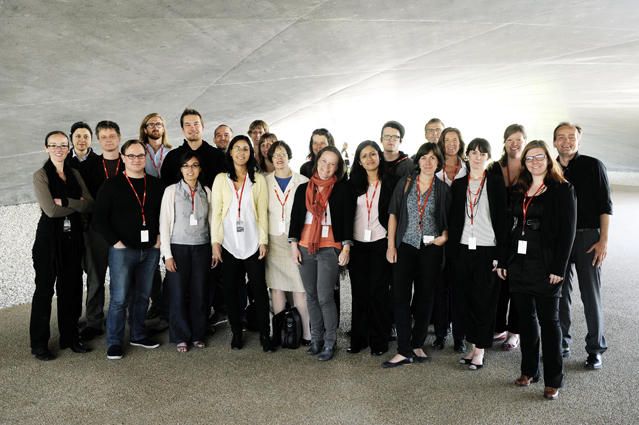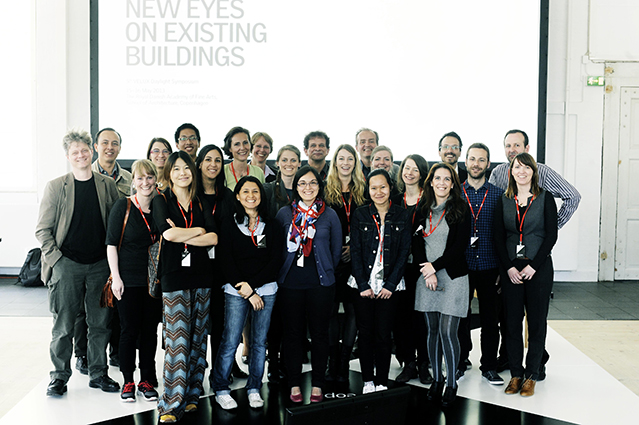
by Jens Christoffersen, VELUX Group
The 3rd VELUX Daylight Academic Forum will be held in London on 1 September 2015, prior to the 6th VELUX Daylight Symposium, as a one-day event dedicated to PhD students working with daylight research. 25 PhD students from 10 countries will meet and discuss their current research projects with a panel of other fellow PhD students – and supported by a panel of scientific experts.
A range of daylight topics, illuminated from different perspectives, approaches and applications, are explored and will be shared among the students attending:
- Alessia Pedace, University of Palermo, Technical Environmental Physics Department of Energy, Italy, Assessment of lighting quality in indoor environments
- Peter Hansen, Ecole Polytechnique Fédérale de Lausanne (EPFL), Switzerland, Visual Comfort: Contrast Glare and Sensitivity
- Raquel Viula, Delft University of Technology, The Netherlands, Dynamic visual comfort in buildings: development of an assessment method based on luminance contrast ratios, applicable to classrooms
- Aicha Diakite, Technische Universität Berlin, Germany, Daylighting master plans as a new sustainable urban design strategy
- Lara Anne Hale, Copenhagen Business School, Denmark, Institutionalization of Sustainable Building
- Zeynep Keskin, The University of Sheffield UK, Behavioural Impact of Daylight: Does it Influence Seat Choice in an Open-Plan, Hot-Desk Work Space?
- Michael Kent, The University of Nottingham, UK, Time of the Day, Temporal and Personal Variables and Task Difficulty in the Subjective Evaluation of Glare Sensation
- Longyu Guan, University College London (UCL), UK, Investigating the MRSE/TAIR based metric for daylight design
- Florin Enache, University of Architecture and Urbanism, UAUIM, Romania, Project for building operation – criterion in determining performance
- Giorgia Chinazzo, Ecole Polytechnique Fédérale de Lausanne (EPFL), Switzerland, Adaptive Visual and Thermal Comfort
- Jean-Denis Thiry, Ecole Polytechnique Fédérale de Lausanne (EPFL), Switzerland, Integrating health effects of light into the design process of daylit spaces
- Corentin Haubruge, Université catholique de Louvain (UCL), Belgium, Lux, lumen; thinking space metaphysically, from Newton to abstraction
- Nafsika Christa Drosou, Loughborough University, UK, Daylight metrics and daylight performance in UK schools: Can compliance encourage designs that save energy and meet visual requirements?
- Siobhan Rockcastle, Ecole Polytechnique Fédérale de Lausanne (EPFL) Switzerland, Dynamic perceptual effects of daylight in architectural space
- Kynthia Chamilothori Ecole Polytechnique Fédérale de Lausanne (EPFL) Switzerland, Evaluating spatial ambiences through daylight variability, contrast and view
- Eleonora Brembilla Loughborough University UK, Applicability of Climate-Based Daylight Modelling
- Federica Giuliani Università La Sapienza Italy, Tools and methods for increasing natural lighting in building renovation design
- Thorsten Lang University of Ferrara Italy, Local solutions for global energy reduction in healthcare design
- Bengt Sundborg KTH, Royal Institute of Technology Sweden, Energy Saving by Using Daylight in Town Planning
- Emy Apodoulianaki Eindhoven University of Technology, Building Lighting Group The Netherlands, The impact of innovative lighting technologies in hospitals on staff performance
- Ahmad Kotbi Welsh School of Architecture, Cardiff University UK, Using Mashrabiya to enhance daylighting and privacy in girls’ schools in Saudi Arabia
- Marja Lundgreen White arkitekter AB and KTH Royal Institute of Technology Sweden, Nearly Zero Energy as a Design Parameter – A Study in Tectonics and Morphology for Nearly Zero Energy Architecture
- Angelina Katsifaraki Fraunhofer-Institut für Solare Energiesysteme ISE Germany, A simulation-based, adaptive, shading control algorithm
- Aimee L Desert University of Sheffield UK, The Potential for Green Façades in the Built Environment and their Effect on the Transmittance of Natural Light
- Natalia Sokól Gdansk University of Technology Poland, Implementation of daylight design strategies in urban planning – barriers to application in Poland
The scientific experts supporting the discussion are:
- Professor Steve Fotios, University of Sheffield, UK
- Professor John Mardaljevic, Loughborough University, UK
- Professor Koen Steemers, University of Cambridge, UK
- Professor Werner Osterhaus, Aarhus University, DK
- Professor Fernando Oscar Ruttkay Pereira, Federal University of Santa Catarina, BR
- Dr. Martine Knoop, Technische Universität Berlin, DE
- Dr. Luisa Brotas, London Metropolitan University, UK
- Dr. Jens Christoffersen, VELUX Group, DK
As Steve Fotios highlight in his blog PhD METHODOLOGY WORKSHOPS: These events are designed to overcome limitations of [scientific] conferences: (1) Each student has a (typically) one-hour session which is devoted mostly to critical discussion with invited senior researchers. (2) The focus is on the aims and methods of research, not the results. And if the method is flawed, the results are meaningless, potentially misleading, and delay scientific progress.
The previous events in Lausanne (2011) and Copenhagen (2013) have gathered significant interest among PhD students, and have established a sizable network among the next generation of lighting researchers. From these events, we have collected a library of completed PhD thesis’s, for new students to be inspired by, and for the daylight community to explore knowledge about daylight research from a wide range of different perspectives and applications – from schools and hospitals to offices, homes and entire urban environments.
Since the first two VELUX Daylight Academic Forum in 2011 and 2013, other conferences and fora have been established to raise discussion of research objectives and methodologies, like the LumeNet focussing on general lighting (including daylight) and related issues in alternate years of the VELUX Daylight Academic Forum.
The 3rd VELUX Daylight Academic Forum as well as the 6th VELUX Daylight Symposium are part of the International Year of Light (IYL) 2015 scientific programme. In proclaiming an International Year focusing on the topic of light science and its applications, the United Nations has recognized the importance of raising global awareness about how lightbased technologies promote sustainable development and provide solutions to global challenges in energy, education, agriculture and health. For more information on the International Year of Light 2015, visit www.light2015.org.
The VELUX Group is International Year of Light 2015 Organisational Associate.




